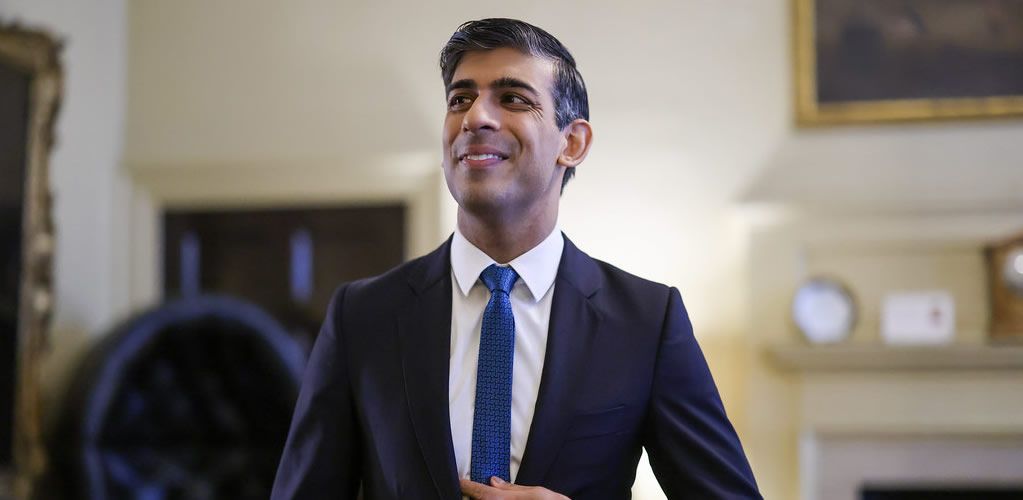Multicultural man, Rishi Sunak
50 years after Peter Adler’s “Multicultural man”, Rishi Sunak’s diverse identity challenges stereotypes and raises questions on multiculturalism.

50 years after Peter Adler’s “Multicultural man”, Rishi Sunak’s diverse identity challenges stereotypes and raises questions on multiculturalism.
I t’s been nearly 50 years since psychologist Peter Adler described the experience of what he called “multicultural man”. This being had, he suggested, a “homeless” self-identity.
The intercultural person was someone who embraces marginality as the most desirable stage of identity development, Mr Adler indicated in his seminal article, Beyond Cultural Identity: Reflections on Cultural and Multicultural Man.
Now, Rishi Sunak, Britain’s first prime minister of Indian ethnicity, may prompt new questions about multicultural man. He may boast, as Mr Adler wrote, “self-consciousness especially suited to working across cultures”, but is Mr Sunak’s self-consciousness and identity “homeless” or consciously pick-and-mix?
The question is worth examining after Mr Sunak’s home secretary, Suella Braverman, declared multiculturalism “has failed”. Mr Sunak does not appear to agree. Asked numerous times by BBC East Midlands about Ms Braverman’s assertion, Mr Sunak said:
“Our country has done an incredibly good job of integrating people from lots of different backgrounds.
“As someone sitting here as prime minister with my background. There’s always more progress we can make on these things.”
That sounds like a tepid intervention — a sit-on-the-fence strategy to ride out a sticky situation — but is it, really?
Mr Sunak’s public school-educated pronouncements and his tidy technocrat’s desk seem to underline the oscillating nature of his multiculturalism. His accent and vowels are of a piece with the aspirational British middle class; the Hindu deities near his computer are a part of the Indian family and faith heritage to which he belongs. Instead of coming across as a formless, shapeless multicultural man, Mr Sunak seems to have an abundance of identities, the best of both worlds, to pick and choose as he wills.

The Hindu deities near his computer are a part of the Indian family and faith heritage to which he belongs.
In some ways, Mr Sunak reminds me a little of the opening lines of Hanif Kureishi’s The Buddha of Suburbia:
“My name is Karim Amir, and I am an Englishman born and bred, almost. I am often considered to be a funny kind of Englishman, a new breed as it were, having emerged from two old histories. But I don’t care — Englishman I am (though not proud of it), from the South London suburbs and going somewhere.”
It’s debatable if anyone will be too troubled by new doubts about Mr Adler’s depiction of multicultural man. Soon after his piece appeared, it caused ructions because multicultural man was seen to be a dismal stereotype and unrepresentative of a broader multicultural identity.
The definition was challenged, in punchy fashion, by Lisa M Sparrow, an academic in the Department of Language Teacher Education, School for International Training, Brattleboro, Vermont. She said the Adler conceptualisation of multicultural identity, typically reflected the experience of White men but not of many women and ethnic minorities.
And now, it seems, it may not be wholly true for at least one brown man as well. Take a bow, Rishi Sunak.

GOING FURTHER
Beyond Cultural Identity: Reflections on Multiculturalism | Mediate.com
Rishi Sunak refuses to say if he backs Suella Braverman multiculturalism remarks | BBC News
Beyond multicultural man: complexities of identity | ScienceDirect
Sources:
▪ Text: This piece was first published in Medium and re-published in PMP Magazine on 1 October 2023. | The author writes in a personal capacity.
▪ Cover: Flickr/Number 10. (Licensed under a Creative Commons Attribution-ShareAlike 4.0 International License.)






[Read our Comments Guidelines]